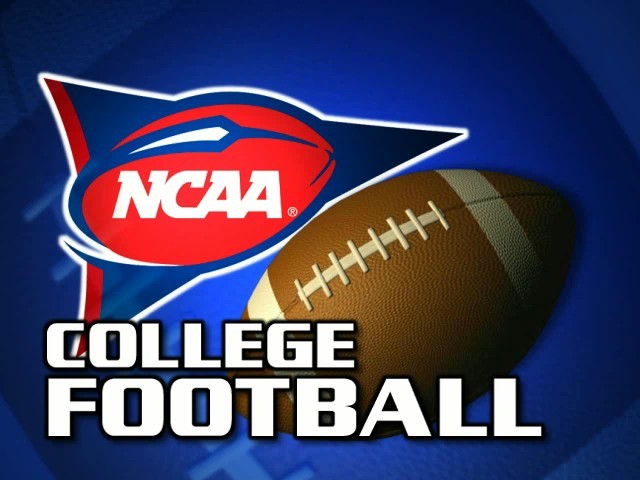The NCAA football rules committee tabled a proposal Wednesday that would have penalized offenses for snapping the ball before 10 seconds had run off the 40-second play clock.
After a conference call, the committee decided not to send the so-called 10-second rule to the playing rules oversight panel for approval Thursday.
"What the committee agreed to do was table that proposal to allow time to gather more information from the medical community and allow time for a broader discussion for the implications of that change," NCAA national coordinator of officials Rogers Redding told the AP on Wednesday.
Redding said the NCAA received 324 comments during the feedback period after the proposal passed and 75 percent opposed the change; 16 percent supported the proposal. The rest were uncertain.
Redding also said a new proposal was passed by the committee to expand roughing the passer to include "forcible" hits to the knees or below. That proposal now goes into a comment period before it will be taken up by the oversight panel. On Thursday, the panel will consider a proposal to drop the 15-yard penalty when an ejection for a targeting foul is overturned by video replay and no other foul is involved. Last year, if the ejection for targeting was overturned, the 15-yard penalty stood.
The 10-second proposal was touted as a move to protect players by slowing down the fast-break offenses so prevalent now in college football. Supporters, such as Alabama's Nick Saban and Arkansas' Bret Bielema, said they were concerned about the increasing number of plays in games and the inability to substitute for fatigued defensive players.
Other coaches were infuriated by the proposal. Auburn's Gus Malzahn, Arizona's Rich Rodriguez and Texas Tech's Kliff Kingsbury were among the many critics who said there was no proof that up-tempo offenses increased the risk of injuries.
Rodriguez and Arizona went to so far as to make a YouTube video spoof of the movie "Speed" to get his point across.
"I don't know where it goes from here, but I appreciate the rules committee realizing it was a mistake to put it out there right now," Rodriguez said Wednesday in a telephone interview.
Had the rule been approved it would have gone into effect next season. The penalty for snapping the ball too fast would have been 5 yards.
Bielema and Saban were not on the rules committee but had a chance to address it last month and push for changes to control the ever-quickening pace of play. Alabama ranked 116th in the nation in plays per game last year at 65.9 per game. Arkansas was 121st at 64.7.
The proposal was passed on Feb. 12. What followed was three weeks of heated debate among college football fans and coaches about the evolution of football.
A debate that is not even close to over.
"I'm just one that doesn't think the officials should not control the pace of the game," Saban told reporters before it was announced the 10-second rule had been withdrawn. "That's what I think, because that's a player safety issue, too. To me, football was not intended to be a continuous game. Soccer is. Rugby is. Football was never intended to be that. It's been played for a long time and there's always been a little bit of time between plays because of the physical nature, the contact that's involved."
The proposal caught many coaches by surprise because this is non-change year for NCAA rules. Exceptions could be made for rules related to player safety, however.
Coaches such as Rodriguez weren't buying the safety concerns and felt as if they had been left out of the process.
"I'm more than happy to join that debate if it goes there," Rodriguez said. "There's a lot people with strong opinions on it on both sides."
Bielema said he feared for players with the sickle cell trait, a genetic condition that can alter red blood cells during strenuous exercise and cause muscles to break down, being unable to come off the field against fast-moving offenses.
"It's hasn't been a schematic (issue) or anything," said Bielema, also before the proposal was withdrawn Wednesday. "It's all been about player safety, and I'm not wavering from that because that's all it's about."
But even rules committee chair Troy Calhoun, the coach at Air Force, acknowledged after the proposal passed that the lack of data supporting safety concerns would make the change difficult to approve.

http://accesswdun.com/article/2014/3/271997
